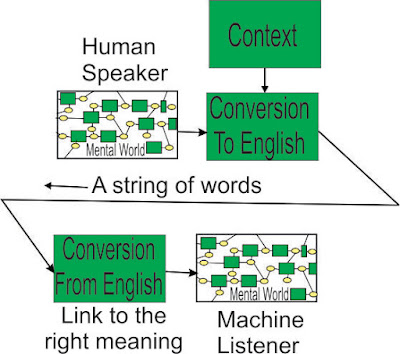Let's talk about Verbs
To talk about verbs, we need to treat them as nouns.
Definition: a noun or noun phrase governed by an active transitive verb or by a preposition
We have ‘noun’, ‘verb’, and ‘preposition’ being treated as nouns for the purpose of parsing the sentence.
Definition: used with a past participle to form the passive mood
We would also need to allow ‘adverb’, ‘pronoun’, ‘conjunction’, ‘participle’, ‘tense’ – in fact every grammatical form to be parsed as a noun.
When we tag “governed by an active transitive verb”, the verb
object is made the child of GrammarVerb. GrammarVerb is an invocation of Noun,
so “an active transitive verb” is seen as a noun phrase, and parsing continues.
There is a connection between GrammarVerb and Verb, but OBJECTONLY, so part of
speech can’t be inherited by the node Verb.
When parsing is completed, the node representing Verb in the sentence is moved from being a child of GrammarVerb to being a child of Verb.
We need to handle punctuation the same way - sometimes it is a noun, sometimes not.
Put a question mark at the end of the question.
There are question marks about the policy.
The sentence is missing a comma.




Comments
Post a Comment